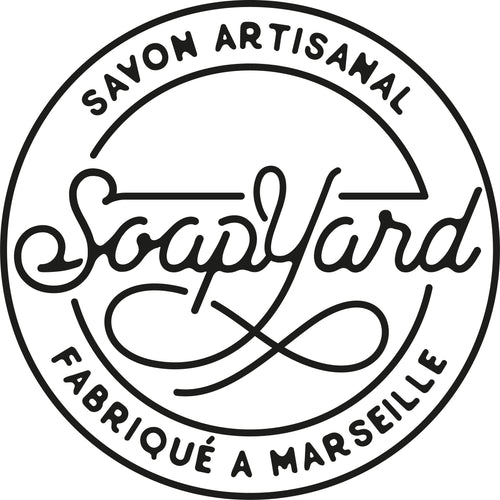At Soapyard, we’re always exploring the bigger picture when it comes to sustainability and consumer choice. Recently, we noticed a surprising parallel between two seemingly unrelated industries: the rise of liquid body wash and the dominance of prescription drug advertising. At first glance, they might seem worlds apart, but both reveal a deeper conversation about marketing, health, and environmental impact.
The Power of Marketing: Liquid Soap vs. Bar Soap
Consider the humble bar of soap—used for centuries, efficient, and eco-friendly. Our French triple-milled soaps last longer than liquid body washes, reduce plastic waste, and offer better value. Yet, despite these benefits, the body wash market continues to grow, largely driven by marketing rather than necessity.
Similarly, in healthcare, the influence of advertising on consumer choice is striking. The U.S. and New Zealand remain the only two countries that allow direct-to-consumer pharmaceutical advertising. In contrast, Europe has maintained a more cautious, evidence-based approach to prescription drug promotion. This has significant implications—not just for healthcare costs, but also for how consumers make decisions about their well-being.
The NHS vs. Direct-to-Consumer Drug Ads
Unlike the heavily marketed pharmaceuticals in the U.S., the NHS follows a strict cost-benefit analysis when approving medications. Treatments that exceed £50,000 per year undergo extra scrutiny to ensure public healthcare funds are spent wisely. While this approach prioritises accessibility and affordability, it can also mean slower access to certain new drugs compared to markets driven by aggressive marketing.
Yet, research shows that countries with bans on direct-to-consumer drug advertising tend to have lower prescription drug costs and fewer instances of unnecessary treatments. The European system encourages doctor-led prescribing rather than patient-driven demand influenced by advertising.
Sustainability & Overconsumption: The Bigger Picture
This brings us back to personal care products. Just as pharmaceutical marketing can drive unnecessary prescriptions, aggressive advertising in the beauty and hygiene industry promotes overconsumption. Instead of choosing products based on function and sustainability, consumers are often swayed by branding, scent trends, or claims of "new and improved" formulas—often in plastic-heavy packaging.
The impact of these choices is visible in our waste crisis. For instance, while Bristol’s proposed four-week bin collections aim to cut costs, they could also lead to an increase in rats and foxes scavenging waste—a problem exacerbated by unnecessary plastic packaging and disposable products. Meanwhile, in Singapore, strict waste management policies have kept rodent populations in check, demonstrating the power of systemic solutions over individual responsibility (source).
What Can We Learn?
Whether it’s pharmaceuticals or personal care, the fundamental question remains: how do we balance innovation with sustainability? When does marketing lead to unnecessary consumption rather than genuine improvement? The European approach to healthcare regulation offers an interesting model—not just for medicine, but for all consumer goods.
At Soapyard, we champion zero-waste, sustainable alternatives because we believe in quality over hype. Our handcrafted soaps don’t just clean—they last longer, reduce plastic waste, and honour traditional, time-tested production methods.
The Truth About Liquid Detergents: Marketing, Loss Leaders & Waste
One of the reasons liquid body wash and detergents dominate supermarket shelves is price manipulation through "loss leader" strategies. A loss leader is a product sold at a very low price (sometimes even at a loss) to attract customers, with the hope that they’ll buy more profitable items once in-store. Supermarkets and big brands use this tactic with plastic-packaged liquid soaps and detergents, making them seem like the "cheaper" choice when, in reality, they are just watered-down chemicals with identical formulas across different brands.
In contrast, a well-made bar of soap—like our French triple-milled soaps—can last for months, providing better value and reducing plastic waste at the same time. The difference is marketing: supermarkets and big brands invest heavily in advertising liquid detergents, creating the illusion of variety and necessity, when in reality, most of these products are the same.
Rethink What You Consume
As consumers, we can make informed choices that support sustainability over convenience. Whether it's skincare or healthcare, questioning the influence of marketing can help us prioritise what truly matters: efficacy, environmental impact, and long-term well-being.
Want to switch to a plastic-free, eco-friendly alternative? Discover our collection of handmade soaps at Soapyard.
"Healthcare" "Sustainability" "Traditional Craftsmanship" "Environmental Research" "European Healthcare" "NHS" "Natural Products"

